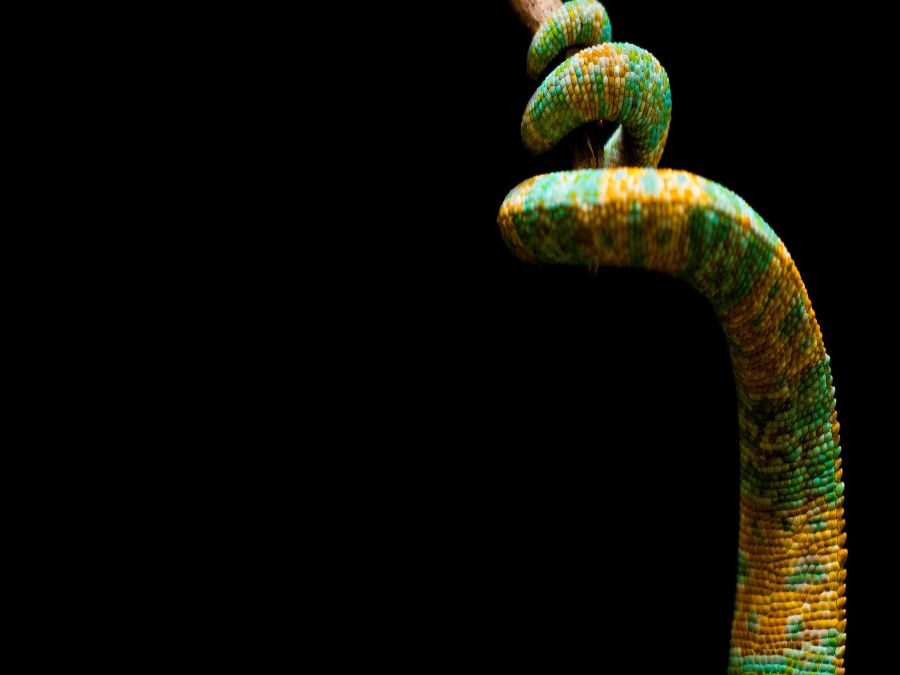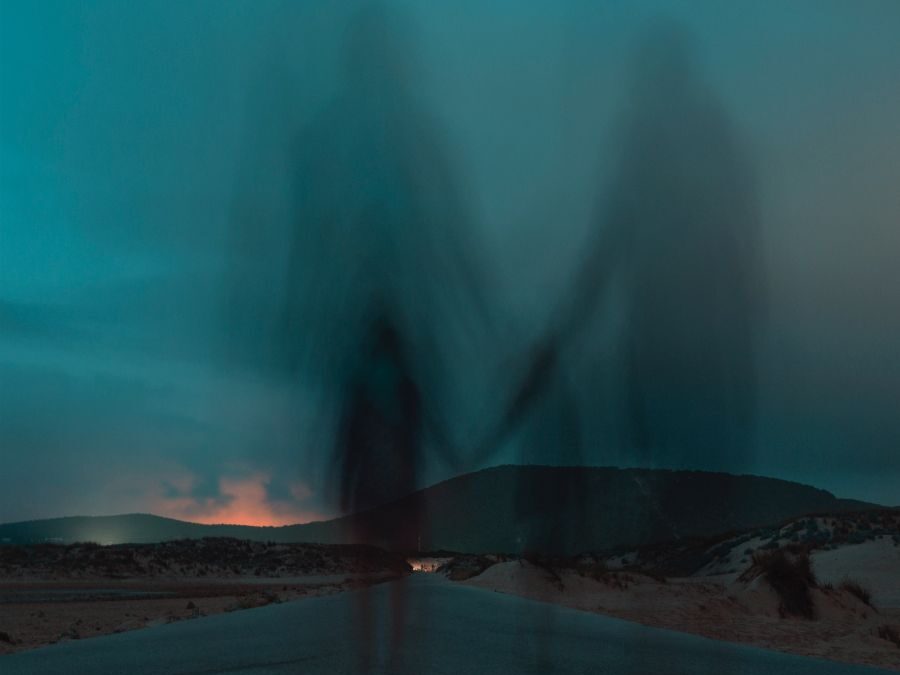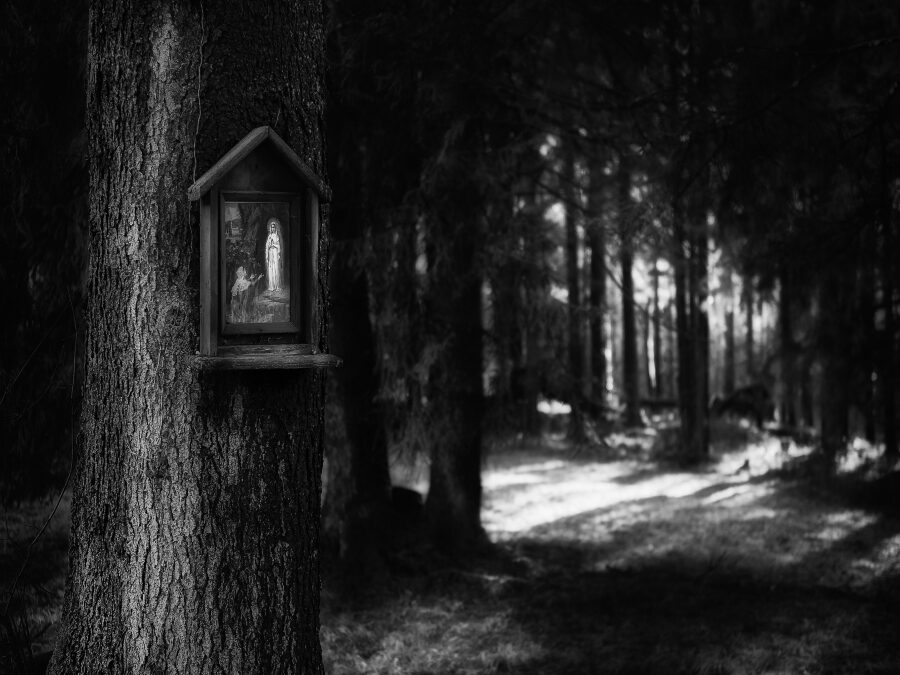
by Anna Gates Ha | Jul 26, 2021 | micro
The pocketknife lies open in the dirt, and the snake—headless, milky-translucent muscle—curls in and out, while the girl watches its rhythm, the way it moves not in defeat but in defiance of her father. Sucker should be dead, he says. Still, it dances. Years later, in a poorly lit dorm, that’s the way she’ll tell it, red plastic cups on the floor. And the boy, pukashelled and drunk, won’t be listening, but she’ll tell him, anyway, dance for him, anyway, become the snake for him, anyway, because this—this evocation of want—will feel like defiance, like reverence.

by Fractured Lit | Jul 26, 2021 | flash fiction, news
We’re so excited to announce the 34 titles of our shortlist! These stories are so good we’ve decided to publish them on the website this year prior to their publication in the print anthology! Thank you for your patience! From this list, Kathy Fish will select 20 stories to be published in our first anthology!
Night Vision
Henrietta
Wild Jill’s Bangin’ Karaoke Bar
Grandma Kim at Forty-Five: a Serigraph in Four Layers
(Don’t) Remember Me Like This
Girl On A Bike, Boy In Dayton
Rabbit Rabbit
Animals
Oil Drills
Girl in the Snow
Love, Exactly
Buen Provecho
Thursday Night at Lucky’s Liquor Store
Waste Meadow
Harvest Moon
I chose the pencil
City Island Diner
Little Tin Box
If this were Tracy Island
The Marriage Market
Muscle and Might
Sweets from Strangers
Make Dust Our Paper
Rustic Haircuts for Returning Ghosts
We Don’t Boil Babies
Salt City Runaway
Almost Like a Heart
Freshman
In Andromeda
Account For What You Have
Blueberries
Evening Clay
Mi Porvenir
As Solid As an Ashtray and Emits More Smoke
Lace in Your Hands

by Emma Brewer | Jul 22, 2021 | flash fiction
Without thinking too deeply about it we presume ourselves to be adequate parents. The baseline assumption is that we would do anything for the babies; we would fight, we would kill. Tonight somehow they outnumber us, although there are still two of them. The one who was born first has learned to escape his crib and howls for his twin to join him; the smaller twin rages to be let out. It’s been three hours of bedtime and we have given up. We’re crouched on the floor in our room, staring into the baby monitor’s small window, where they appear as if in the bottom of a fish tank: murky, grayscale, dull but for the flashes of eyes as they scream. This is when we see her in the monitor. We see her body, her drifting hair, the billowing arms, each one reaching for a twin’s mouth. She’s between the cribs, a cloudy heart between cages.
We’ve always understood ourselves to be proper parents, quick in a catastrophe, selfless. Maybe we can blame the day we’ve had. Because I spent today assisting that one surgeon who hates me, and after we removed a six-pound mass from a sleeping golden retriever, and I — swiftly, sublimely — stitched up the incision, he whispered think fast and slipped the tumor into my arms and watched me drop it, watched the flecks of blood smatter while it wobbled at my feet. And you, arriving at yet another job interview, realized you’d worn your sneakers and scrambled to buy new, unaffordable dress shoes and — panicked, sweating — threw your own shoes into a dumpster outside the interview. And of course, of course they were already gone when you went digging for them after.
We believe, we have faith, that we are sufficient parents, and we’ve spent the evening laughing at our failures while negotiating pieces of nourishment into the babies’ mouths and then our own, while somewhere deep in ourselves a light shutters, a sun darkens, bones prickle in the sockets. We see her at the same time. Through the crackling of the monitor we hear our younger twin say blue and our older twin say Mama. We see her reach for their faces and what happens is a pause.
Inside the pause we recognize each other. The pause is prolonged by each of us witnessing the other one pause. That horror drifting over our children’s bodies could be a demon thirsty for innocents, could be a witch with a pair of wicked changelings, could be an apparition born of shared delirium. She may be stronger than we are, she may lack our feeble need for rest and protein, our shameful limits; she may want nothing more than to draw from an inhuman wellspring of patience and sing our children to sleep. And you and I, we hold our breath to see what will happen, to find out if the ghost haunting our nursery is a better parent than we are. We take a long terrible moment, before pelting to the room, before flooding it with light and sound.

by Fractured Lit | Jul 21, 2021 | flash fiction, news
We’re so excited to announce the 62 titles of our longlist! The submissions we received were so resonant, engaging, and creative that we’ve had a hard time narrowing down the list! We’ll announce the shortlist titles in the next few days! Thank you for your patience! From this list, Kathy Fish will select 20 stories to be published in our first anthology!
Night Vision
Henrietta
Wild Jill’s Bangin’ Karaoke Bar
Built Back Better
Grandma Kim at Forty-Five: a Serigraph in Four Layers
(Don’t) Remember Me Like This
Girl On A Bike, Boy In Dayton
Rabbit Rabbit
Animals
Oil Drills
When We Get To It
Girl in the Snow
Love, Exactly
The Last Weeks of the War
40 Days and a Wake-up
Colic
Buen Provecho
Thursday Night at Lucky’s Liquor Store
Waste Meadow
Pretty Things
Harvest Moon
How Much Time Will Go By
Ditto
If Only
Housekeeping In Movement
I chose the pencil
City Island Diner
Little Tin Box
If this were Tracy Island
The Marriage Market
Seeds of Love
Muscle and Might
Sweets from Strangers
Further from the Heart
We Could Live Here
Women Learn To Fly
Make Dust Our Paper
Rustic Haircuts for Returning Ghosts
We Don’t Boil Babies
Salt City Runaway
Almost Like a Heart
Freshman
In Andromeda
Kaamos
Choruses
The Beak
Wishing AAA had been DDD
Object Permanence
Lady of the Canal
Porky
Agora é Sempre
Drip by Little Drip
Account For What You Have
Blueberries
Sundowners
Evening Clay
Named and Unnamed
Mi Porvenir
As Solid As an Ashtray and Emits More Smoke
Lace in Your Hands
1979 Buick LeSabre

by Amy Barnes | Jul 21, 2021 | news
Sara Hills’ debut flash collection The Evolution of Birds brings her unique brand of surreality to birds, humans and the evolution of both with a skillful blurring of humanity and reality. From dark moments to humor, the collection brings Hills’ unique voice in layers, unflinching, but also balanced with endearing moments and wry humor.
The collection of 48 flashes and micros are an evolutionary entry in flash fiction. Nearly half (nineteen of the forty-eight) of the flashes are unpublished, unread and awaiting readers to discover them as literary wonders, akin to opening a tomb of golden feathered humans and golden feathered birds.
Publisher Ad Hoc brings Hills’ collection to life with a practiced eye, introducing yet another stellar flash volume in their ever-expanding lineup. A family project, Hills’ daughter creates the stunning artwork to evoke the title and so much more, giving us a visual peek into another mother/daughter relationship.
The title flash “The Evolution of Birds” starts off the evolutionary table of contents of girls, birds, nuns, hippos and tigers, IKEA and Survival Camp. Hills does more than write words, she intentionally blazes them across pages. In the opening salvo across the ornithology bow, we get a momentary hint of lightness with the main character’s name: “Hope.” Hills infuses the opener with words that foreshadow and just plain shadow: pointed sticks, fire, bow drill, a lean-to, foragers cobbled-together.
“Hope was the first girl to whittle an arrow and erect a lean-to with foraged brush; the first and only one to get the fire started by means of a cobbled-together bow drill—a strung-up stick whirled fast and hot in the shallow groove of a wooden plate.”
The opening story is part of Hope’s origin story, part collection origin story but also begins a coming-of-age for the entire collection. Hills continues on to move characters through evolutions of spirit, life, relationships, religion and grief: immersing the reader with sensual details: charred grease, sleek grey bodies, an iridescent flash of purple, red outlines of bird bodies, throated coos, silver birch and sycamore, rusted red under fingernails, pink flesh on tin plates, wax-covered candy, dirt-flavored, molars dark packed in chocolate. The reader gets these flashes in flash of how humans and birds are existing and not-existing together.
There are evolutionary threads throughout the collection, themes that tie the stories together but also literal threads: a knitting hippo’s yarn, a baby’s ragged lifeline, umbilical cords from author to book to reader. Readers may find themselves tying their own lives to the stories while holding on to this evolution of girls, birds and humans. In “Finders Keepers”, the ending line sums up that movement from character to character, reality cast aside.
“You knot one end of the fraying mud-brown twine and put it where your heart used to be. The other end you hand to the baby, just in case.”
While each flash and micro has its own characters and settings through Hills’ skillful worldbuilding, the entire collection becomes a world in itself. In the opening story, the leader of the Survival Camp gives the campers instructions on how to survive. But, we also get instructions as exterior readers of the stories in his statements. Through Hills’ flashes and micros, we not only get inside the bird’s head, we also get inside each character’s head.
“Get inside the bird’s head,” the leader told us. “Think its thoughts—if it has any. Predict its responses. Detect the slightest effort to flee.”
The themes and settings here are familiar: shopping in an IKEA, threatening roads, coming-of-age, danger, girls, babies, fathers, mothers, nature, religion and yet, the storytelling is all Hills’ signature style.
While there are more ordinary words and phrases in the collection, Hills’ excels with unique and visual descriptions. A copse of silvery pines. An avalanche of wind, Tongue flakes with ice. Gum wrappers folded into a siren’s window pinwheels. The characters, sentences, phrases become an evolution in themselves, sparkling clues left behind. Whether the reader is in an IKEA tracking a rogue nun or telling stories to distract a sibling, Hills leaves hieroglyphs for reader archaeologists to discover — bits of fossil truths to dig through, excavate, process through emotion and empathy and evocativeness.
Hills brings readers familiar images that tug at emotions. An untethered child. Fraying life. Fraying twine. A heartbroken and missing and hurt. But there is also a hope thread that runs through the grief, loss, and pain of the flash grouping. The opening character Hope functions as a bellwether for the collection by refusing to eat the eventually-captured birds. Her reasoning is that she can’t eat the meat because she “knew the evolution of birds.” As readers, Hills guides us to explore the evolution of birds and humans and life.
For over 100 pages, each flash of The Evolution of Birds, readers see that despite difficult situations, there is survival and resilience. The existence of these stories together is the proof — the evolution. The survival. Hope/hope survives. The narrator survives. The Survival Camp campers survive. Readers will survive. Hills’ collection helps readers feel as if they might survive, thrive, move past grief and difficult childhoods and painful adulthoods, and maybe even sprout feathers and fly.

by Tina May Hall | Jul 19, 2021 | flash fiction
After dinner, Father folds a swan out of his paper napkin. Mother says, “My, how early it grows dark.” First Daughter laughs at a flickering outside the window. She thinks it is an out-of-season firefly or a spark from the chimney, but really it is someone creeping through the trees with a flashlight.
Father folds triangle over triangle, smaller and smaller, until a head and wings appear. Second Daughter watches the ghost of her grandmother walk around the table and touch everyone’s plate. Second Daughter wonders if the dead get hungry and eats the last corner of her tuna sandwich in one bite so grandmother’s ghost will not stand too long by her. Birds fly up from the apple orchard in a cloud blacker than the sky. Only Son screams for his bottle. Mother says, “He has such strong lungs; perhaps he will be a soldier.”
First Daughter goes to the fireplace and pretends to do homework. She writes numbers in long columns and eats the eraser of her pencil in secretive nibbles. Second Daughter follows grandmother’s ghost into the kitchen and catches her trying to chew through the rims of cans. Second Daughter wonders if the dead feel pain. She whispers, “Stop,” and grandmother’s ghost throws a can of pureed tomatoes at her. Father places the swan in the bowl of grapes where it rocks over the uneven fruit and watches everyone out of its mustard-spot eye.
Mother clears the plates from the table. She says, “Goodness, these dishes are so clean, I don’t believe they need washing.” Father tears Mother’s napkin into small pieces. In the garden, rows and rows of green beans tangle closer for warmth. The eggs in the henhouse mutter in their sleep. The light outside the window draws closer. Second Daughter sees it and knows what it is. Someone is moving through the forest toward them.
Only Son screams because grandmother’s ghost is biting his upper arm. Mother says, “Perhaps he will be a stockbroker.” First Daughter throws her wool mitten into the fireplace to see the yellow smoke. She loves things for the colors they burn. Mother says, “What is that smell?” Grandmother’s ghost flies shrieking up the chimney. Second Daughter wonders if the dead can get stuck in small places, and Only Son screams because he is growing older. Father touches the swan’s wing with the brown tip of his finger and imagines holding a grape in his cheek, not biting it, just feeling its roundness.
First Daughter wishes she could burn everything. First Daughter wishes she could set her whole body on fire.
Mother says, “When the wind howls like that, it means snow.” Father pinches the swan’s beak so it opens and closes as if repeating Mother’s words. Mother and Father both think of the garden and the tender asparagus, which sells for two dollars a bunch. Later, they will have to cover everything in burlap, as if pulling the covers up over their children. Mother remembers her own mother sitting by her bed on fever nights. Mother remembers planning her trousseau, remembers begging for the white silk nightgown, now yellow as an egg yolk in the upstairs closet. Second Daughter points to the window where the flashlight shines. Everyone looks at the window. Mother says, “My, the moon is bright tonight.” Only Son screams. He can’t remember what moon is, but he thinks it means winter.
Second Daughter imagines all of the things that could be circling her house with a flashlight. She remembers stories from school of children being cut up and left in the forest. She remembers the wolves and the bears and the abused boys who grow up to torture people found via classified ads. Mother says, “Nonsense, that light is too white to be the moon.” Father’s brown fingers crush the swan’s long throat. The grapes wither a little in their porcelain bowl, roll closer to each other for comfort.
Second Daughter opens the door, and a wind rushes in that is not grandmother’s ghost. The light moves away from the window and is lost in the shrubbery. Only Son screams because he knows someday he will sit alone in this same room, hungry and cold. Mother says, “Perhaps he will be a dictator.” Father feeds him a grape. First Daughter holds one finger over the fire and then her whole hand. The swan closes its one yellow eye and tries to remember life before dinner. Father sings a lullaby about three thieves and a serial killer. Mother says, “I believe I am getting a chill.” Mother says, “No one buys the cow when they can get the milk for free.” Only Son moans, and Mother gives him a knife to teethe on. Mother says, “You’ll thank me for this later.”
Second Daughter walks outside where everything smells like a ghost. She leaves without her red cloak, without her father’s ax, without breadcrumbs for the path home. She has only her proud virginity that clangs like a bell, her will to escape like an egg slipping free, and her curiosity, that strange puss, the part of her brain that claws toward the dark. In the night, in the black fringe of the forest, she could be anyone. She could be the witch sipping boy-blood, the doctor scraping lichen for his collection, the girl who runs and runs and runs.
First published in The Collagist January 2010
Published in The Physics of Imaginary Objects, University of Pittsburgh Press, 2010.

by Star Su | Jul 14, 2021 | flash fiction
—after Wong Kar-wai’s Chungking Express
Clare dresses like an ice cream cone. Chocolate lace, vanilla skirts. All of it melting down her limbs, rain or slush. Faye is glad that Clare doesn’t give her an ounce of recognition—not when they sit next to each other in calculus, or every Saturday after varsity tennis, she stops by Baskins Robbins. One scoop Very Berry Strawberry, one scoop Gold Medal Ribbon in a sugar-free cone. Faye is not good at memorizing equations but she knows how to make substitutions, especially to find out the nature of an unknown variable. She swaps the sugar-free cone for one made-to-order in the waffle iron. Clare grasps her order, nails painted whorls of peach sorbet, and shouts “Thank you” over the counter. Faye never hears, or pretends to. California Dreamin’ chips through the stereo, fights the brown snow coating the sidewalk. Both of them dream of LA, a trajectory towards palm trees and promise.
Two years later, Faye part-times at The Broken Egg when she finds Clare at the formica counter, her eyes cracked and puffed as blueberry pancakes. Anything light on the stomach, white chocolate mocha. Faye folds eggs in the buttered pan with more care than she ever has, trims the browned edges before plating it onto a thick slice of rye. She squeezes whipped cream over the coffee even though Clare didn’t ask for any. At the diner, Faye has seen this equation many times but still has no solution. Clare closes her eyes when she eats, chews a long time before swallowing.
Ten years later, Faye works the tables at Ruth’s Chris, a steakhouse inside a train station, where everyone in this town buys a one-way ticket from. Faye tries to take the second wine glass from the table but Clare tells her she’s waiting for her husband, a pilot whose flight must be delayed. Faye serves Clare the best thing on the menu—crab cakes with lemon butter—though if she had a choice, she would take Clare home to her kitchen. And then what? Faye stops thinking further than the studio kitchen, the futon at its feet. Clare smiles each time Faye passes her table, and by dessert, they are the only ones left in the domed dining room. They light the bread pudding on fire, the whiskey burns until there’s only orange-scented smoke. Clare beckons Faye to sit by her side, sneaks a spoonful to her mouth. Faye works backwards from the night before. A pair of lobster bisques and one-way tickets for a pilot and his date. Faye decides Clare knows how to isolate a problem variable, subtract what she needs. Faye decides this is the closest she’s going to get (after all, every tangent has only one point of contact with the curve they lean against) and squeezes Clare, waiting until she drives away, before buying a ticket.
The next morning, Clare walks into each of the eateries downtown, searches through smoothie joints, bakeries, and arcades with pizza that is 50/50 good and games that do not obey probability. She buys mojitos and loaves of bread but neither solves her hunger. Waiters assume she likes mochas without whipped cream, serve her Diet Cokes until they are sun-piss warm. When she asks the staff at Ruth’s Chris for Faye, they pass her a napkin in advance. Clare is left with a theorem, no proof.
One year later, Faye tugs her luggage into the one air-conditioned shop downtown. She smudges the glass display with a California-tanned finger. One scoop of Very Berry Strawberry, one scoop Gold-Medal Ribbon. Only when the server hands her a real waffle cone does Faye look up, her fingers laced into one with sorbet-dipped nails.

by Edie Patterson | Jul 8, 2021 | flash fiction
1.
The bird flies in through an open window on the first story of the hotel. The bird flies through a patch of dead zinnia stems in a splintery wooden window box where the cat sits sometimes in the nice weather, his shiny fur full of the dust that is disintegrating flower petals and spider legs and dirt. In the summer, he lies there to watch the glimmering translucence of cicada wings and white moths, his green eyes filled with daylight and flower petals and spider legs.
The hotel is busy on the day the bird flies in. It’s early spring, a warm day, and the cat is lying in some pool of sunlight far away; there are guests there and one of them spots the bird and yells something. It’s a starling and it flits around in a panic, a whirl of wings and the tame talons that sit on bird feeders in backyards. But still it is wild, angry, shrieking and frenzied and mottled wings and beady eyes too far away to see.
2.
Fall sinks into winter, flocks of geese into the fanned-out sparrow wings that dart between skeleton branches in the snow, a mess of heartbeats and birdsong. Our days are penciled in planners and guestbooks, colored by memories in organic shapes. We dream of soft ice cream and chlorine blue beneath our atlas of oak trees.
One day, the heater breaks in the hotel, and everyone sits inside piled in coats and blankets until there is nothing left showing, nothing the wind might sting. Except our eyes, filled with anticipation and glass windows. We are afraid to close them.
Today is winter and cold and the sky is so heavy with gray it’s snagged on the naked limbs of elms. Today, we hold our breath, which is a hazy cloud that drifts upwards to join the sky, an organic shape.
3.
The hotel is full of houseplants, six feet tall from the brims of their ceramic pots, explosions of green on trellises and hooks and nails, and butter-yellow sunlight confined in neat rectangles on the hardwood floor, and people and our backpacks and suitcases and orderliness and instincts. We’ve shed our puffy winter coats and patterned wool hats and started to open our windows, just a bit. We weigh ourselves down with suitcases and we hold room keys and pamphlets and exhaustion. We ask about the weather and tourist spots and where to eat dinner. We carry our belongings in tidy stacks inside bags, heavy and self-important.
Everyone stops when the bird flies in. It’s scared at first, fluttering around with sharp wings full of dust. Then it stops and sits on a railing of an upstairs hallway that overlooks the lobby. It sits there in the sun so we can see the blue-green iridescence of its feathers and the scared clutch of pink claws on our polished railings and the point of its beak. We are scared of it and its unpredictability. It is scared of us and ours. So we wait, and in a minute, we watch its wings awaken and some impulse leads it out a different open window where it disappears, unhurt and wild, into an organic shape in a white sky.
4.
In the spring, two barred owls nest in an alley three blocks away from the hotel and stare at us through budding branches and golden hour light and glassy unfazed eyes. We release our breathing, and the world instead holds its breath. We think of underground rivers and owl feathers. We float as organic shapes on the steady syllables of our words, held captive by the enigmatic hopefulness between the lines of tree branches that begin to fill in with letters and viridian greens.
The last time we see the owls is in May. One of them is perched on a telephone wire across the street from the hotel. The hotel manager comes inside, and we hear the echo of the door slamming from within the enclosed right angles of the white walls of our rooms. Outside is the beginning of night and the end of evening and a sliver of yellow moon suspended in an inky dusk.
Months shift from breath and memories and leaves. May is a planner page, pencil lines. The breath is still there, exhaling with moon and stars and birdsong.
“There’s an owl outside, a barred owl,” we hear faintly from behind our closed doors.
So we congregate on the lawn, green grass peppered with blooming clovers, a celestial mirror.
We stand in the middle of an asphalt street, barefoot, staring at the sky and the trees, a collective gaze. It feels like watching the world spin or watching a flower open. There’s tar that fixes cracks in the street and yellow streetlamp light. We can barely make out two owl eyes on the telephone wire. There’s a shroud over the owl, a branch of a tree, and its tendrils. They stretch out in shades of green through a heavy darkness.
We glance back at the hotel building, its neon sign and stacked bricks and mortar square corners. We feel heavy placed here on the asphalt beneath these trees. We watch the world spin. The owl flies away, hidden by the brown blur of its wings. We watch a flock of birds on the darkening blue horizon. We watch the world spin, barefoot on asphalt. We watch the iridescence of starling wings, too far away to see.

by Tara Stillions Whitehead | Jul 6, 2021 | flash fiction
The bluegrass is dry and sick.
“You were the one who survived,” I say. “You were very fortunate.”
You are an expert forager, combing the orchard for chokecherries and fallen apples. The summer worms are desiccated and flat, but you capture a young garter snake in a silted patch of creek bed. We feast. I marvel. I do not have to teach you to be brave.
My first hatchlings were stillborn.
I am not prepared to hear your first song—light, liquid bursts of music, ascending phrases slurred like your dead father’s chatter.
“Tell me a story about when you were young,” you say.
It is the first time I see myself as not being young. We are bathing together in the amber creek, sycamore and ash leaves crowding my reflection.
“I wanted to fly to the sun.”
“That’s silly,” you say. Then, sotto voce, “Did you ever try?”
If I could smile, I would.
I clear a small opening of leaves. Dive to the creek’s dirty bottom. The current moves me downstream, and I do not resist. Movement is a relief.
The worms are wintering underground when I tell the story of your father’s death.
“Still water possesses dark magic,” I say. “He didn’t recognize himself. So strong was his instinct to defend the nest.”
I don’t tell you how badly he beat himself, that it wasn’t the first time he’d done it. It is not uncommon for a father to pulverize himself against a closed window, convinced he is slaughtering his rival. He is not entirely wrong.
Your first frost comes early. I teach you how to preen for winter, how to oil each vane.
I tell you that you will bring the spring. It is in your blood.
I don’t tell you about the autumn a swan killed my young mother or that this is my final winter.
I don’t tell you I am terrified for you, or that I wasn’t hatched from an egg, not entirely.
My origin story is a passing away, a nagging memory. Incantations and silphium and bloodwort. Thistle wreaths and possession and protection charms. A seductive feast of worms. A girl desecrated and deplumed on the bank of a river. Murdered by a swan for her soft womb.
A father cannot sew life back into his dead mother’s belly, but he can procure another bird’s shell and suffocate life into animation.
“Dark magic is not our only predator.”
You are the one who notices my afterfeathers are brittle, splitting like cambium beneath a blade of frost. I’ve ceased to molt, and upon awakening, I can hardly fly. You stay with me through the winter, but your restlessness is palpable.
We are eating a modest meal of holly berries and snow when you ask what the first spring without me will be like.
“A mate will find you, and you will breed. You will build the nest. You will give birth, more than once, maybe in the barn, maybe in the crotch of this sturdy Cortland. Some eggs will be speckled, some will be plain. Most will not survive.”
Your feathers are less downy now, more elongated and gray. I can’t make out the spots on your breast anymore. I am so small next to you, my last child.
“How will they die?”
“You will lose them to the crows. To the snow. Every loss will try to ground you. But you are strong. You defy gravity. You harness wind.”
On the morning of my death, I wake to the sound of screeching. It is a sound I have made, one that rattled the elm leaves the night I was born. I have never taught you this sound.
Whoever he is, he left evidence. Deep claw marks in the soft bark of our tree. Fresh mudding and needles and grass for construction.
I hear your desperate flapping somewhere. His wildness upon you beyond the bare rows of orchard. Each violent wing stroke recalls your conception. The percussion of hollow bones. Blood scent on my flightless wings. The nest built too low to the ground. “You are fortunate,” he had told me afterward. “You will bring the spring now.”
It is quiet morning again.
You return with a piece of black yarn and begin bundling the mud and grass. Your feathers are slick and disheveled. You work quickly, uncharacteristically distant. You know I am watching, but you do not meet my gaze.
You finish securing the yarn and then hurl yourself, all fit and feathers and dew, into the air you love so much. My sight is failing. You. Gone and then there. I can barely see you—a vision—alighting on the highest branch, heartbroken, far from reach.
Dawn blushes life into your breast.
I want to warn you about the worms and their aphrodisia. I want to teach you how to prepare hemlock in the case of emergency. But you’re contemplating the distance to the sun, calculating dates using the rime’s thickness, searching for your magic’s color in the snow vapor.
You are no longer mine.

by Gwen Kirby | Jun 30, 2021 | flash fiction
“No small sensation has been made by the report of a duel between two ladies. . . . The [disagreement] was regarded as so serious that it could only be settled by blood.” —Pall Mall Gazette, August 23, 1892
We call it an emancipated duel—the duelists, seconds, and doctor, all women—but we will never be emancipated from the stupidity of men.
I am the doctor. In the carriage, I have pads of fabric prepared to staunch the bleeding, and before they fight, I insist they remove their upper garments. If a rapier pierces muscle, I won’t have dirty linen entering with it. The duelists unhook their shirtwaists, untie their under-bodices, fold their chemises over their skirts, leave their steam-molded corsets to lounge on the grass, eerie as the skeletons of whales. All that is left on their lovely ribs are red divots from the places they’ve been bound.
They breathe deep for the pleasure of it. They shake hands. They strut. They speak. It’s all bravado, a script we have read in novels and watched on stage. Isn’t this how men speak? How dare you. You presume too much. I’ll repay your insolence with blood. They are dueling over a flower arrangement, who copied whom, and it would be easy to think them ridiculous, but I don’t. As if flowers are ever only flowers, words only words. As if men duel over anything better, shooting each other over the imaginary flowers we press between our legs. The women move three paces apart. One of them looks a bit pale now that it’s beginning in truth; she looks to the side, eyes searching, as if she has expected someone to stop them. They hold their swords high. Who should be the one to say en garde?
A blade through flesh is nothing like a needle pricking a finger. When I first cut open a cadaver, I expected the incision alone to crack the chest wide, to open the dead like a cabinet. But it takes strength to crack a sternum and will to get inside.
The duel is quick. The pale woman cuts the other’s nose with a wild, panicked swipe. She’s shocked at what she’s done. The other woman grins, blood on her teeth, and dances forward, cuts a deft slash across the pale woman’s arm. First blood to one, but the better hit to the other. Both look happy when I yell that it’s done. The women touch their wounds and lick their salty fingers and one of the seconds faints, but not at the blood—though that is what the paper will say—no, she faints at the pleasure on the duelists’ faces, the flush across their upper breasts, the strength of their arms, the desire she feels to strip her own clothes off and join them.
Not to be out done, the other second fakes a swoon. But she’s felt lust before, seen blood on her menstrual rags and gushing from her sister as she died in childbirth. They had to burn the mattress, the stain was set so deep. I check her pulse as she lies in the grass and when she glances into my eyes, she looks ashamed of herself.
Honor has been satisfied, I say, and the other women nod. As I bandage an arm, tie a corset tightly back into place, I think that if I were to design a duel, I would not imitate men. What does skill with a sword or a pistol prove about truth or right? Why must half of us always lose? Place the duelers in neighboring rooms and leave them there. Let them grow bored. Give them nothing to do but embroider and nothing to drink but tea. See how long they can stand the silence. See how long it takes before they are whispering through the wall, grateful for the sound of another voice, willing to admit that they were both wrong, willing to admit anything if it will set them free.










Recent Comments